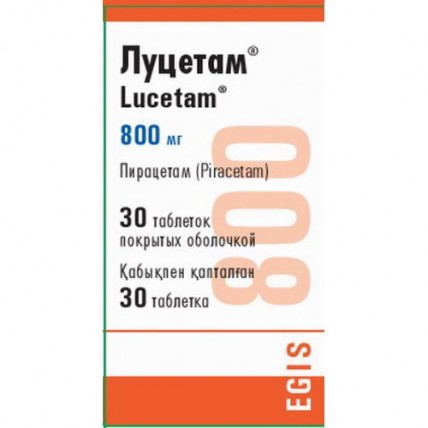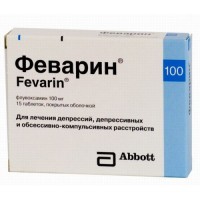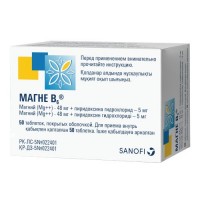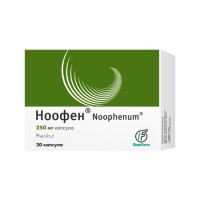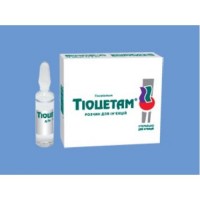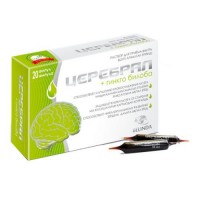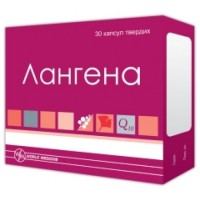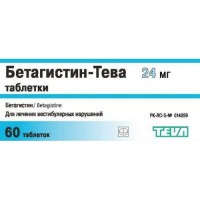Lucetam® (Piracetam) 800 mg, 30 coated tablets
- $15.00
Compound
One tablet contains:
- active ingredient - piracetam 400mg, 800mg or 1200mg,
- excipients: magnesium stearate, povidone (K-30),
- shell: macrogol 6000, dibutylsebacate, titanium dioxide (E 171), talc, ethylcellulose (in the form of an aqueous dispersion), hypromellose.
Indications for use
Symptomatic treatment
- psychoorganic disorders (in particular in patients suffering from memory impairment, dizziness, decreased concentration and general activity, behavior disorder, gait disorder, as well as in elderly patients with Alzheimer's disease and senile dementia of the Alzheimer's type)
- the consequences of disorders of cerebral circulation (aphasia, disorders of the emotional sphere, motor and mental activity)
- recovery period after trauma and intoxication of the brain
- cortical myoclonus as mono- or complex therapy
- dizziness and imbalance (except for disorders associated with vascular disorders and mental uncertainty)
- As part of complex therapy
- alcohol withdrawal syndrome, as well as cognitive impairment associated with chronic alcohol abuse
For children
- prevention and treatment of sickle-cell vascular-occlusive crises
- dyslexia treatment (in complex therapy) - from 8 years old
Method of administration and dosage
The drug should be used strictly according to the doctor's prescription!
The dose should be selected individually in accordance with the severity of the disease, as well as the response to the drug. In acute diseases, as well as if oral administration is difficult or impossible, it is recommended to use the drug Lucetam® for injection. It is recommended to divide the daily dose into 2-4 equal doses. The tablets should be taken before meals and washed down with 100-200 ml of liquid. The last dose of the drug should be no later than 4 pm (prevention of insomnia). The duration of treatment is determined by the clinical condition of the patient. In chronic diseases, the optimal effect of the drug is usually achieved within 6-12 weeks. After 3 months, the results of treatment should be analyzed and the question of whether it should be continued should be decided. If further use of the drug is deemed appropriate, then approximately every 6 months it is recommended to reduce the dose or completely cancel the drug. Depending on the etiology of the disease - if there is a good effect of the drug - the treatment can last for several months, and in the case of Alzheimer's disease - even several years.
Recommended doses for various indications:
Inside, the drug is prescribed in a daily dose of 30-160 mg / kg, the frequency of administration is 2-4 times / day.
Symptomatic treatment of psychoorganic syndrome: 2.4 - 4.8 g / day in 2-3 doses.
Treatment of the consequences of cerebrovascular accidents: 4.8 - 6 g / day for subacute or chronic diseases (lasting more than 15 days).
Cortical myoclonus: the initial dose is 7.2 g / day, after which, if necessary, the dose can be increased by 4.8 g at intervals of 3-4 days up to 24 g / day. In the future, depending on the improvement in the patient's condition, it is recommended to gradually reduce the daily dose at intervals of 2 days (3-4 days with Lance-Adams syndrome) by 1.2 g in order to avoid a sudden exacerbation of the disease or seizures when the drug is discontinued.
It is recommended to use the usual doses of other drugs for the treatment of cortical myoclonus; their doses can also be further reduced as the patient's condition improves.
Dizziness and disturbances in the sense of balance: 2.4 - 4.8 g / day in 2-3 doses.
With alcohol withdrawal syndrome: 12 g / day, maintenance dose 2.4 g / day.
For children aged 8-13 years: the maximum recommended dose is 3.2 g / day in 2 doses, in combination with speech therapy.
Side effects
Side effects, with a frequency of less than 5%
- nervousness, irritability, anxiety, agitation, aggressiveness, increased motor activity, sleep disturbance (observed mainly in elderly patients receiving the drug in a daily dose of more than 2400 mg)
Side effects with a frequency of less than 2%
- nausea, vomiting, diarrhea, pain in the stomach, weight gain
Seldom
- increase or decrease in blood pressure
- dizziness, headache, tremors
- increased libido
- allergic reactions
Rarely
- insomnia and fatigue (paradoxical effects)
In isolated cases
- anxiety, confusion, hallucinations, ataxia (gait disturbance), imbalance, worsening of the course of epilepsy
- angioedema, dermatitis, pruritus, urticaria.
Side effects usually disappear when the dose is reduced.
Contraindications
- hypersensitivity to piracetam, other pyrrolidone derivatives or other components of the drug
- severe renal failure (creatinine clearance below 20 ml / min)
- hemorrhagic stroke
- children under 8 years old
- pregnancy and lactation.
Drug interactions
Simultaneous use with drugs that stimulate the central nervous system can increase their stimulating effect.
Simultaneous use with antipsychotics can lead to increased motor activity.
Concomitant use with thyroid hormones (T3 + T4) can enhance central effects (tremors, anxiety, sleep disturbances, confusion).
Taking Lucetam® at a dose of 20 mg / day does not change the peak and the curve of the concentration level of antiepileptic drugs (carbamazepine, phenytoin, phenobarbital, sodium valproate) in patients with epilepsy receiving the drug at a constant dose.
The simultaneous use of Lucetam® (1.6 g) with ethanol does not affect the level of concentration of each of these substances in the blood plasma.
Lucetam® in high doses (9.6 g / day) increases the effectiveness of acenocoumarol in patients with venous thrombosis (there was a more pronounced decrease in the level of platelet aggregation, fibrinogen, von Willebrand factors, blood and plasma viscosity compared with the use of only acenocoumarol).
In in vitro tests, the concentrations of piracetam 142, 426 and 1422 μg / ml did not suppress the hepatic enzymes of the human cytochrome P-450 system (CYP 1A2, 2A6, 2B6, 2C8, 2C19, 2D6, 2E1, 3A4 / 5, 4A9 / 11). Therefore, metabolic interaction of Lucetam® with other drugs is unlikely.
Special instructions
With a decrease in renal function, the drug should be used in reduced doses and with regular monitoring of renal function indicators. In elderly patients, it is recommended to check kidney function before taking the drug.
In epilepsy and other spasmophilic conditions, Lucetam® can lower the threshold for convulsive readiness. To change the established anticonvulsant therapy of patients with epilepsy, detailed consultation with a specialist is necessary, even if Lucetam® improves the patient's condition.
Since Lucetam® inhibits platelet aggregation, the drug should be prescribed with caution to patients with blood clotting disorders, in hemorrhagic conditions or after extensive surgery.
When treating cortical myoclonus, abrupt withdrawal of the drug may cause seizures to recur.
In hyperthyroidism, the use of Lucetam® requires special care due to the risk of increased central effects (tremor, anxiety, sleep disturbance, confusion).
Application in pediatrics
The drug is not recommended for use in children under 8 years of age due to the lack of data on its effectiveness and safety in childhood.
The drug is used as part of complex therapy in children, especially in cases of acquiring specific reading, writing, and counting skills that cannot be explained by mental retardation or inadequate learning.
Features of the influence of the drug on the ability to drive a vehicle or potentially dangerous mechanisms.
There are no clinical data on the effect of Lucetam® on these abilities, however, given the possible side effects of Lucetam®, such an effect cannot be excluded. Therefore, the degree of restrictions is determined by the doctor for each patient individually.
Overdose
Piracetam is non-toxic even at very high doses. There is no specific antidote. If an overdose is suspected, symptomatic treatment should be used. Piracetam can be removed by dialysis with an extraction efficiency of 50-60%.
Storage conditions
Store at temperatures between 15o C and 30o C.
Keep out of the reach of children!
Shelf life - 5 years
Do not use after the expiration date.
